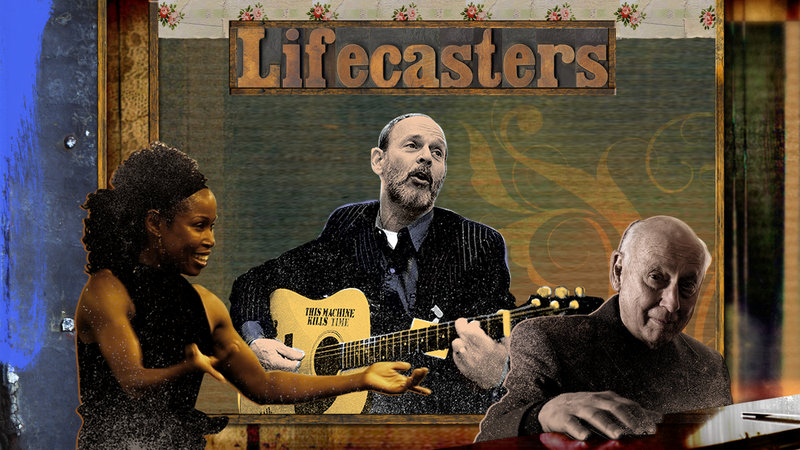Even after a taste of success, things are never easy for an independent filmmaker.
“This is sort of like a half-win,” says Maine director Aron Gaudet, sighing. “We’re excited for people to see it — but it’s a disappointment.”
The “it” in question is the PBS documentary anthology “Lifecasters,” which Gaudet and his wife/directing partner Gita Pullapilli executive-produced and which will air online Thursday night at PBS.org.
At least, that’s where you’ll have to see it if you live in Maine.
“Gita and I developed ‘Lifecasters,’ says Gaudet, “and, even though it was only picked up by PBS as a one-off film, we were still excited it was going out. But when we approached MPBN (Maine Public Broadcasting Network), they said it wasn’t on their schedule at all.”
Each PBS affiliate has a great deal of autonomy in choosing whether to air its own programming over the network’s, and MPBN, despite Gaudet and Pullapilli’s Maine credentials, chose to give “Lifecasters” a pass on its national release date. Instead, it will relegate it to online-only viewing for Maine residents (although MPBN confirms it will air here at 3:30 p.m. April 7), a decision made all the more surprising to the filmmakers considering their previous successful relationship with PBS.
Gaudet and Pullapilli’s previous documentary, “The Way We Get By” (about Maine senior citizens who greet returning U.S. troops at the Bangor airport), was a multiple award winner and aired on every PBS station in the country — and many times on MPBN.
And this time around?
“We’re trying to move on from it,” says Gaudet. “They’re completely within their rights. I guess they just didn’t see the Maine connection.”
Charles Beck, MPBN’s vice president and director of content, responds that that’s not the case. He said that while the filmmakers — who he enthuses have done “amazing work” — are from Maine, “Lifecasters” itself is not about Maine subjects.
He adds that the decision to air the program later on has nothing to do with the film’s quality and everything to do with a crowded schedule of local and very popular Thursday-night programming. “You should be here when the phone calls come in if we pre-empt ‘Doc Martin,’ ” said Beck.
Gaudet says he and Pullapilli are especially disappointed because they’ve sought to preserve that Maine connection in all of their other film projects.
“Everything we do, we want to get it to the people in Maine first,” he said. “With ‘The Way We Get By,’ we held our opening in Maine, not New York or L.A. And we’re planning to do the same with (their upcoming Maine-set feature) ‘Blue Potato.’ We’re in Maine, making content in Maine. And while ‘Lifecasters’ is not about Maine per se, we wanted Mainers to see it along with the rest of the country.”
Ever-attendant compromises aside, Gaudet brightens considerably when discussing “Lifecasters” itself.
Apart from Gaudet and Pullapilli’s entry “The Gambling Man,” about an 80-year-old former doctor who quit medicine in order to write his dream symphony, the film includes “Sparkle,” about a veteran dancer’s attempt to come back from injury at age 49 from directors Julia Reichert and Steven Bognar, and, in what Gaudet calls “a great get,” “The Beast and the Angel,” about legendary punk rocker Wayne Kramer’s crusade to bring music instruction to America’s prisoners from “Anchorman” director Adam McKay alongside wife/co-director Shira Piven.
Despite his frustration, Gaudet thinks “Lifecasters” has something for everyone.
“They’re underdogs finding ways to go after their dreams late in life, living outside of the norm of their professions and worlds and finding ways to succeed,” he said.
You know, like an independent filmmaker.
Dennis Perkins is a Portland freelance writer.
Send questions/comments to the editors.


